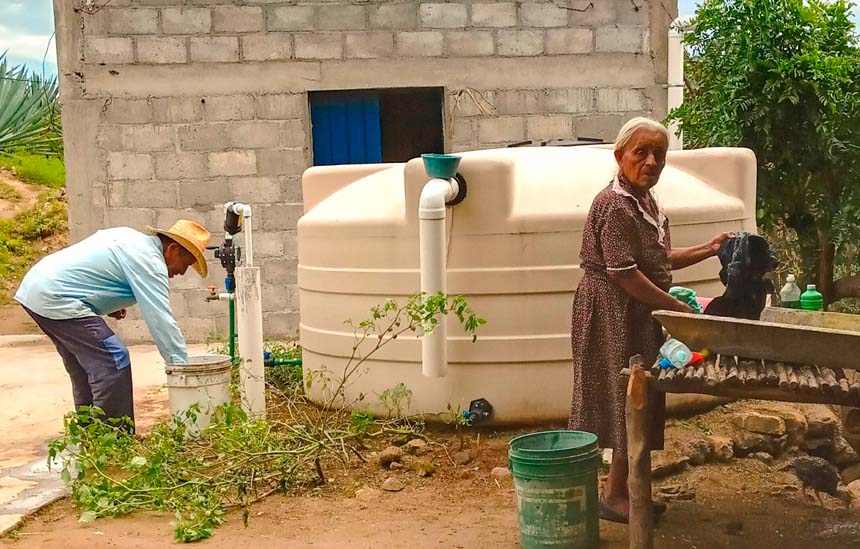- Inclusion: It serves some 25,500 households in Peru, Mexico, Panama, Chile, the Philippines and Ethiopia
- Humanitarian action: It adapts its model to refugee camps and develops an application to facilitate the incorporation of clean energy in humanitarian interventions
acciona.org closed 2023 with 120,000 beneficiaries of its universal access to energy, drinking water and sanitation programs in remote areas, 30% more than the previous year. The foundation already serves 25,500 households (+24%) in Peru, Mexico, Panama, Chile, the Philippines and Ethiopia.
acciona.org ended the year present in 1,317 communities, where it has implemented a differential model: local organizations that offer energy and water in remote locations in exchange for a social fee, creating user care centers that guarantee spare parts, technical maintenance, and the technology necessary for the service’s continuity.
In addition, in 2023, ACCIONA’s foundation deployed, as a member of the Shire Alliance, a model for access to electricity for the refugee and sheltered population in Dollo Ado (Ethiopia) and initiated, together with Action Against Hunger, the development of an application that will enable the efficient incorporation of renewable energy solutions in humanitarian interventions. Both actions are co-financed by the European Union.
“Shire Alliance. Access to energy for refugees and sheltered communities” is an association in which the acciona.org foundation participates together with the Spanish Agency for International Development Cooperation (AECID), the Polytechnic University of Madrid and other Spanish companies, with the collaboration of the United Nations High Commissioner for Refugees (UNHCR).
The sustainability of the acciona.org model and its potential to ensure inclusive development has led to its selection by the International Labor Organization (ILO) as an example of a “high-potential solution” for achieving a just energy transition to a decarbonized economy in the world.
IMPACTS IN 2023
Access to basic services has a direct impact on the improvement of education, health, and hygiene levels, as well as on the dynamization of the local economy, with the creation of a productive fabric, the participation of women in community life and the protection of the environment.
Education and training. Access to electricity -37 million hours available- made it possible to take advantage of almost 11 million additional hours of daylight during the year. Some 44,400 school-age users were able to dedicate an additional 1.32 million hours to doing their homework after sunset, thus increasing their motivation and educational level. The availability of basic services also frees children and adolescents from the chores of providing firewood and water for their homes.
Health and hygiene. Clean lighting minimizes diseases caused by combustion fumes and the low light intensity of candles, kerosene, firewood, etc. In addition, reliable water and sanitation systems prevent diarrheal diseases and improve the health and hygiene conditions of the communities served.
Local economy. acciona.org’s 45 user care centers offer close advice and service management, supply of spare parts, accessories, and household appliances. In addition, the availability of electricity, water and sanitation services promotes the creation of local stores, restaurants, and craft workshops.
More social weight for women. acciona.org approaches its programs guaranteeing gender equity and systematizing the incorporation of women in decision-making in the implementation of projects. More than 1,317 women participated by the end of the year in the representative bodies promoted in each community and are part of the 38,548 female users who improved their working conditions at home in 2023. Almost half of the user care centers that support acciona.org’s services, a total of 19, are run by women.
Environmental preservation. The set of home photovoltaic systems in operation prevents the emission of up to 8,764 tonnes of CO2 during the year and the uncontrolled disposal of 40.4 tonnes of batteries, while curbing forest and environmental degradation due to the collection of organic fuel and unsanitary dumping habits.

